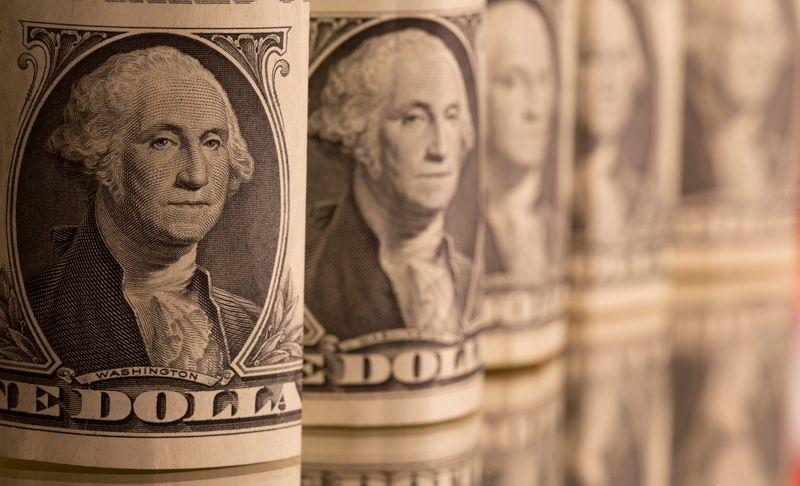NEW YORK (Reuters) – The U.S. dollar slipped from four-month highs against a basket of currencies on Monday, following a small dip in U.S. Treasury yields, as investors wagered that the U.S. economy would recover and inflation would rise.
The dollar index fell about 0.25% at 91.86, following last week’s gain of 0.5%.
Over the weekend, Turkish President Tayyip Erdogan’s shock replacement of a hawkish central bank governor with a critic of high interest rates dragged the lira down as much as 15% to 8.485 against the dollar.
The yield on U.S. Treasuries fell on Monday and was last down at 1.6981% but remained near one-year highs as investors bet on an economic recovery. Yields had risen after the Fed last week said the U.S. economy was on track for strong growth.
“The bond market sell-off has somewhat eased,” said Edward Moya, senior market analyst at OANDA in New York. “It should provide a little bit of calm amid the dollar and its major partners.”
He added that the moves in Turkey will be isolated and in the near term would put a “little bit of fear in the emerging markets trade.”
Turkey’s shock decision to replace its hawkish central bank governor also supported the dollar’s safe-haven appeal.
Markets have been slow to catch on to the rising dollar theme in recent weeks as investors had bet that a global economic recovery would prompt buying of riskier currencies.
But rising U.S. Treasury yields and the prospect of more lockdowns in several euro zone countries has driven a widespread unwinding of short dollar bets.
As a result, traders cut their long euro bets to the lowest levels since June 2020 while net positions against the Japanese yen flipped into positive territory for the first time in more than a year, latest positioning data showed.
Worries that Turkish market upheaval would spill into others also supported the dollar, especially against currencies like the Australian dollar and Norway’s crown.
The Turkish lira stood at 7.875 per dollar, down more than 10% from its Friday close.
The pound slipped against the dollar as investors focused on broader currency market drivers and the European Union’s threat to impose a ban on vaccine imports to Britain.
Currency bid prices at 10:16AM (1416 GMT)
Source: Read Full Article
